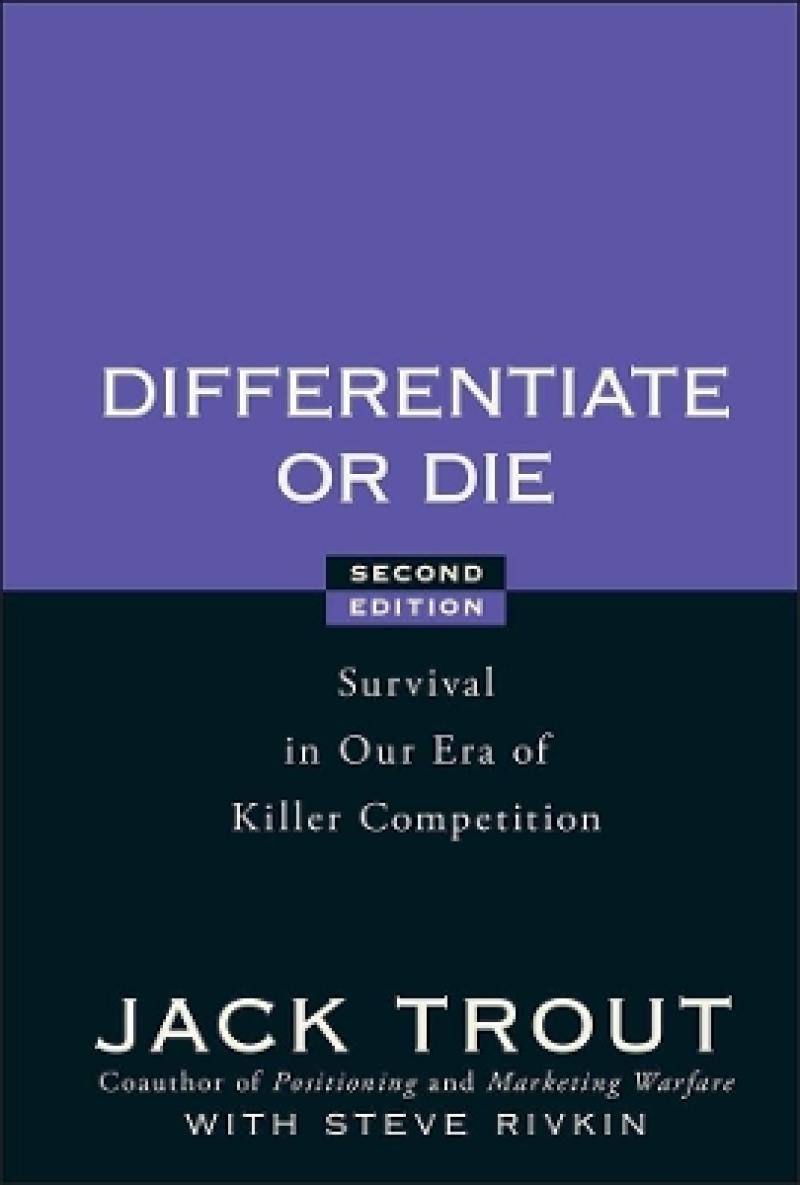Chapter 1. The Tyranny of Choice 1
Chapter 2. The Creeping Commoditization of Categories 11
Chapter 3. Whatever Happened to the Unique Selling Proposition? 19
Chapter 4. Reinventing the Unique Selling Proposition 27
Chapter 5. Quality and Customer Orientation Are Rarely Differentiating Ideas 35
Chapter 6. Creativity Is Not a Differentiating Idea 45
Chapter 7. Price Is Rarely a Differentiating Idea 55
Chapter 8. Breadth of Line is a Difficult Way to Differentiate 67
Chapter 9. The Steps to Differentiation 75
Chapter 10. Differentiation Takes Place in the Mind 83
Chapter 11. Being First is a Differentiating Idea 93
Chapter 12. Attribute Ownership is a Way to Differentiate 103
Chapter 13. Leadership is a Way to Differentiate 117
Chapter 14. Heritage is a Differentiating Idea 125
Chapter 15. Market Specialty is a Differentiating Idea 137
Chapter 16. Preference is a Differentiating Idea 145
Chapter 17. How A Product is Made can be a Differentiating Idea 155
Chapter 18. Being the Latest can be a Differentiating Idea 165
Chapter 19. Hotness is a Way to Differentiate 175
Chapter 20. Growth Can Destroy Differentiation 181
Chapter 21. Differentiation Often Requires Sacrifice 191
Chapter 22. Being Different In Different Places 199
Chapter 23. Maintaining Your Difference 207
Chapter 24. Differentiation in the New World of Buzz 217
Chapter 25. You Can Differentiate Anything 225
Chapter 26. Who is in Charge of Differentiation? 235
Epilogue 243
Notes 245
Index 251
Consumers today have an endless number of choices among products that are virtually identical. Short of slashing your prices and wrecking your margins, differentiating is the only way to gain market share and win.
Since its original publication, Differentiate or Die has become the bible for marketers who must find a way to separate their products and brands from the competition. Meanwhile, competition among similar products and services has only intensified—making differentiation even more important.
In this fully updated edition of Differentiate or Die, Jack Trout and Steve Rivkin bring the book in line with all the newest ideas and recent changes in marketing. Trout doesn’t pull any punches, taking marketers to task for going the easy route too often—using high-tech razzle-dazzle or advertising sleight of hand to woo customers. The only way to truly differentiate yourself is by marketing the product’s uniquely valuable qualities.
Full of practical case studies that show great differentiation in action, including new case studies from Russia and China, Differentiate or Die, Second Edition, shows you how to tap into core differentiating ideas like heritage, market leadership, and being first to emotionally connect customers to your products. In addition, this revision includes new research on brand commoditization, new insight on using buzz to your advantage, a new chapter on differentiating absolutely anything, and a detailed look at the perils of line extension in today’s marketplace. These are only a few of the valuable, proven differentiation strategies included in the book, giving you unparalleled insight into one of marketing’s most intractable problems.
From the classic “unique selling proposition” approach to the ins and outs of product positioning, this book contains all the best, most effective strategies for differentiating your product from the competition in tight quarters.
Produktdetaljer
Biografisk notat
JACK TROUT is President of Trout & Partners Ltd. (www.troutandpartners.com), one of the nation’s most prestigious marketing firms with offices in twenty-two countries. He is recognized as a top marketing guru and is the creator of the revolutionary concept of positioning. He is also the coauthor of the bestselling classic Positioning, among many other titles.
STEVE RIVKIN is founder of Rivkin & Associates LLC (www.rivkin.net), a marketing and communication consultancy. He is coauthor of five books on marketing and communication strategy and is a frequent speaker at seminars and conferences around the world.
